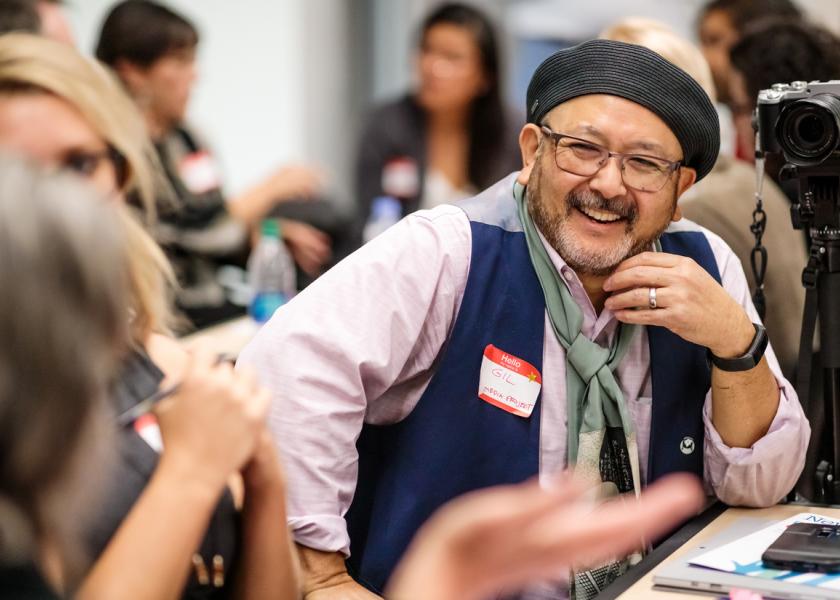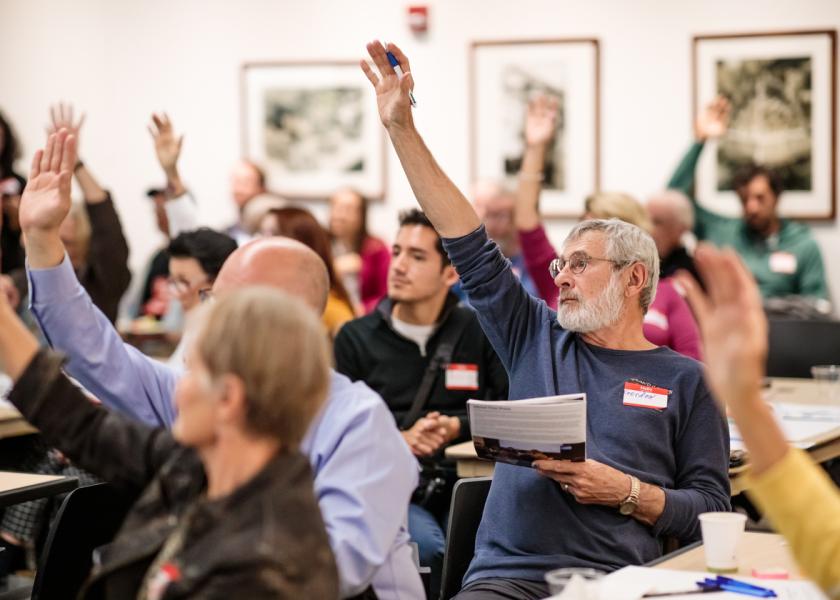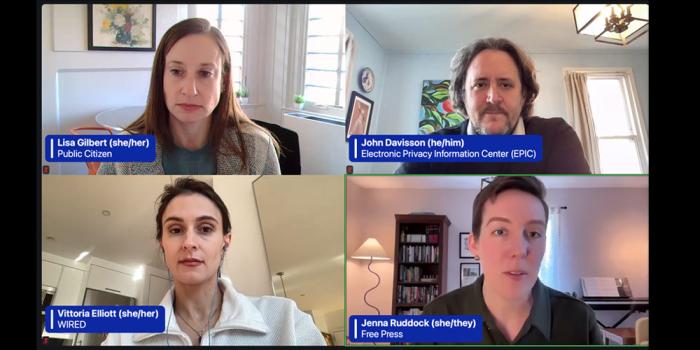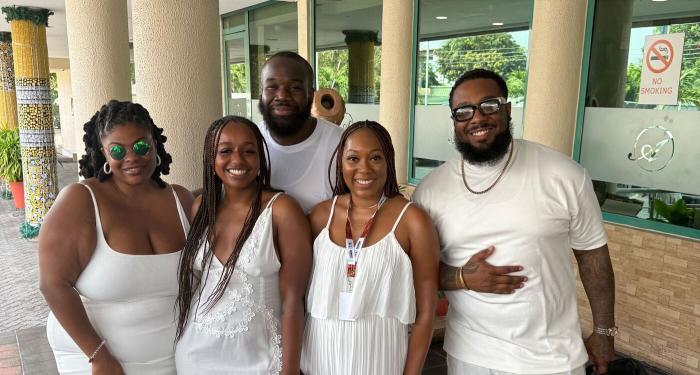Imagining the Future of Local News for Boulder County
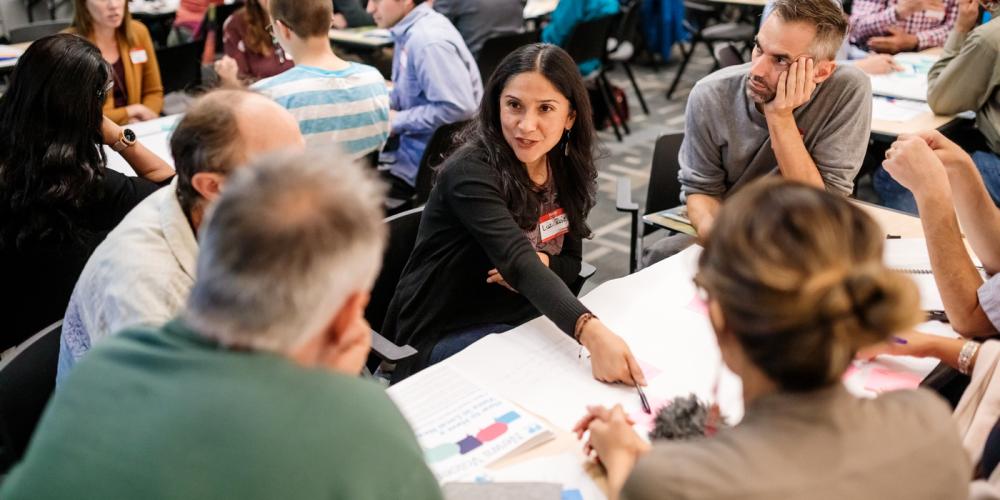
Imagine it’s five years in the future.
Local news is stronger and more trustworthy. What’s the relationship between journalists and community members like? What stories are being told, and from whose perspectives? What resources exist to tell those stories?
In Longmont, a city of nearly 100,000 outside Boulder, Colorado, nearly 70 residents, journalists, elected officials, community leaders and students packed a room at the Longmont Museum last Wednesday to imagine that future.
The collective visioning process was part of “Local Voices for Local News,” an event organized by Free Press in partnership with the Colorado Media Project. The gathering involved community members in outlining the sorts of local journalism that would help their communities and the broader region thrive.
“There need to be more voices in journalism.”
“Perhaps the future is citizen journalists.”
“We need to start talking about equity in media access and distribution.”
“Can media be a way to build community?”
Those are just some of the ideas that emerged in small-group conversations. The idea of training community members in news production came up repeatedly. Attendees also discussed the need for equity, transparency and resources for small local-media producers.
The event came on the heels of the release of the Colorado Media Project’s major report “Local News is a Public Good,” which makes the case for public policies to strengthen and transform civic media and local reporting across the state.
Like people in other parts of the country, many Coloradans have witnessed a withering away of local news. The state is home to The Denver Post, whose editorial page famously rebelled last year to voice opposition to its hedge-fund owner Alden Global Capital and the cuts it inflicted on their newsroom. Across the state, the number of reporters has dropped by 44 percent in the past decade, and nearly one in five papers have closed since 2004. In the meantime, Colorado’s population has grown larger and more diverse.
But Local Voices for Local News focused on the future, not the past — and the fact that so many people gathered to take part in drafting a new way forward is reason enough to believe in a bright future for local news.
Macie May, editor-in-chief of the volunteer-run Longmont Observer, whose team was just awarded the contract to run Longmont’s public-access station, shared how participants can take part in shaping the organization’s new media-maker space. Two other local journalists shared their vision for local news: John Vahlenkamp, a veteran reporter at the Longmont Times-Call, and Rossana Longo, a bilingual equity reporter at community radio station KGNU.
Also in attendance were residents of the small nearby town of Lyons who want to revive their recently shuttered local paper, as well as leaders from Open Media Foundation of Denver, the local politics outlet Boulder Beat and Fraser Valley Community Media.
Melissa Davis, a Longmont resident who works for the Denver-based Gates Family Foundation and serves on the executive committee of the Colorado Media Project, presented CMP’s research on the state of local news in Colorado. My Free Press colleague Mike Rispoli and I discussed our News Voices program and facilitated small-group conversations so participants could connect and each contribute their vision for local media.
If there was one theme that ran through everyone’s remarks, it was collaboration. As KGNU’s Longo put it, there’s an indigenous concept we can learn from when drafting the future of news: la minga, a Quechua term that means “collective work”.
“The minga is normally done when we need to clean the creeks and let the water flow,” Longo said. To bring local voices to local news, we must embrace la minga so that everyone works together.
“Why?” said Longo. “Because the waters need to flow.”



